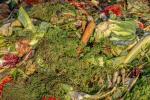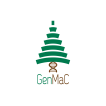Operational Group: Sustainable Development and the Circular Economy in the Wine Sector
- Type Operational group
- Execution 2018 -2018
- Assigned Budget 10.000,00 €
- Scope Autonómico
- Autonomous community Cataluña
- Main source of financing CAP 2014-2020
- Project website https://ruralcat.gencat.cat/documents/20181/5202516/Redacci%C3%B3+GO_2016_007_A…
Creation of an Operational Group to propose an Innovation Project that includes the creation of a system of indicators for sustainability and the development of different circular economy models in the wine sector.
It involves developing a system of indicators based on the DPSIR methodology, which will take into account the five fundamental environmental vectors initially planned (energy, water, waste, green purchasing, and social aspects), allowing companies to define specific improvement actions that will materialize in different circular economy business models according to their needs.
The DPSIR (Driving-Forces-Pressures-State-Impacts-Respond) methodology addresses the development of a conceptual framework for formulating and communicating environmental policies and/or responses that can be implemented to alleviate various environmental problems, while also taking into account social aspects.
The DPSIR can help structure environmental information related to environmental problems specific to the wine sector by analyzing the causes, consequences, and possible responses.
In addition to the above, the following specific technical objectives have been achieved:
- The creation of the Operational Group and the definition of the potential research consortium. In addition to the launch of the operational group by its members (INNOVI and EURECAT-CTM), key stakeholders in the innovative initiatives and projects currently being developed within the wine sector have also been identified. This has allowed them to be contacted and opened the door for their participation in the future innovation project, for which they have already expressed interest.
In this regard, the innovation project consortium will be made up of research institutions specializing in sustainability in the agricultural sector and agri-food industrial processes, environmental consultancies, winemaking companies, and industry suppliers, in order to work across the entire value chain.
This consortium will represent the needs and challenges of the sector and thus develop an innovative and competitive project. - The detailed identification and evaluation of experiences in the sector (carbon footprint, water footprint, and energy, economic, social, and sustainability-related indicator systems) in order to pre-evaluate which lines of work should be emphasized when determining this set of indicators.
- Determining and analyzing the mechanisms companies use to report their sustainability achievements, in order to pre-determine the best tools for reporting their commitment to sustainability based on this system of indicators.
- Drafting the innovation project. Based on the conclusions drawn from the previous phases, the necessary innovative actions were defined to determine the scope of the project and specify the technical objectives.
The prevailing approach has been to define a project among the members of the Operational Group based on the needs identified in a collaborative and participatory manner with the companies in the sector.
However, the profiles of the companies, public entities, or complementary research centers that would need to be incorporated into the innovation project in order to achieve the stated objectives, as well as the implications, requirements, and deadlines of the various calls identified for submitting the project, will be defined.
The initial objective of the Operational Group creation and project definition phase was to present the results obtained from the reporting, in order to receive feedback from companies in the sector for the GO's definition of the innovation project. With this in mind, a working meeting was convened at INNOVI's facilities, where the INNOVI Project Committee was also invited.
The main objective of this Commission is to promote research, development, and innovation projects throughout the wine sector's value chain, aligned with INNOVI's vision and mission. The objectives of the Commission and the Governing Body are thus completely aligned, which is why it was deemed appropriate to hold the working meeting jointly. The Commission currently consists of seven members, including wineries, universities, and technology centers.
From the presentation of the results, companies emphasized the need for the innovation project not only to focus on developing a system of indicators for the circular economy, but also to enable companies to define specific actions that would help them promote circular economy business models.
From this point on, the project's approach was enriched by the sector's request to also develop, in parallel, circular economy business models that would leverage the system of indicators initially proposed. It was also agreed that the OG would be composed of INNOVI and EURECAT and would rely solely on the support of companies to jointly define the project in a subsequent workshop session, in order to identify their needs and actively convey them. This would allow the company to gain their vital support for presenting the project to one of the research calls as beneficiary partners.
The aforementioned workshop took place on Tuesday, June 19, 2018. The GO was in charge of the preparation, and 12 attendees from different winemaking sectors participated in this workshop.
Three fundamental parts were considered:
- Introduction (30 min.). Presentation and reminder of the background, the formation of the GO, objectives, and the methodology that would be used in the workshop.
- Participatory dynamic (1h and 45 min.) Two groups of 6 people worked on the circular economy models already defined with the Canvas methodology, with a EURECAT member moderating each table.
- Conclusions (15 min.) Sharing of the ideas that emerged and the main conclusions reached.
The workshop highlighted the main issues of interest to the sector regarding these circular economy models, as a preliminary step toward developing the research project itself.
In this way, we began to identify the most pressing needs in order to implement the solutions developed for the project itself and, at the same time, further sparked the interest of companies in participating.
As a result, the proposed innovation project itself was finalized. Its main objective is to develop and implement new business models based on the circular economy in the wine sector to strengthen the sector, diversify its activities, and open it up to new development opportunities, taking into account a sustainable perspective.
- Coordinator/entity name: Associació AEI Innovi
- Coordinator/entity email: csantamaria@innovi.cat
- Associació AEI Innovi





